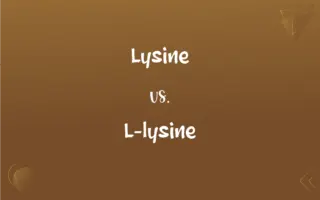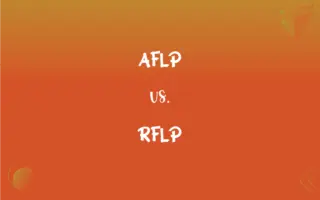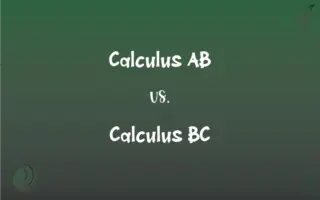American Revolution vs. French Revolution: What's the Difference?
Edited by Janet White || By Harlon Moss || Updated on October 9, 2023
The American Revolution (1775-1783) was a colonial revolt against British rule, while the French Revolution (1789-1799) was an uprising against the French monarchy.

Key Differences
The American Revolution, which spanned from 1775 to 1783, was rooted in the American colonies' desire for independence from British rule, emphasizing "no taxation without representation." The French Revolution, beginning in 1789 and lasting a decade, was fueled by social inequality and fiscal mismanagement, leading to the overthrow of the Bourbon monarchy.
The American Revolution was more about asserting independence and establishing a democratic republic. The French Revolution, on the other hand, was not only about overthrowing the monarchy but also reshaping the very fabric of French society.
While the American Revolution led to the drafting of the U.S. Constitution and the establishment of a federal system, the French Revolution saw the rise and fall of radical regimes, including the notorious Reign of Terror under Robespierre.
The American Revolution's primary opposition was between American colonialists and British loyalists, eventually resulting in the formation of the United States of America. In contrast, the French Revolution faced internal oppositions, leading to extreme political changes and eventually the rise of Napoleon Bonaparte.
Both revolutions are recognized for their profound impacts on world history. The American Revolution influenced other colonial uprisings and championed republican ideas. The French Revolution spread revolutionary ideals throughout Europe, even sparking wars.
ADVERTISEMENT
Comparison Chart
Dates
1775-1783
1789-1799
Causes
Taxation without representation, British imperial policies.
Social inequality, fiscal crisis, oppressive monarchy.
Major Outcomes
Independence from Britain, U.S. Constitution.
Overthrow of Bourbon monarchy, radical political changes.
Notable Figures
George Washington, Thomas Jefferson.
Louis XVI, Robespierre, Napoleon Bonaparte.
Global Impact
Inspired colonial revolts, spread republican ideals.
Disseminated revolutionary ideals in Europe, sparked wars.
ADVERTISEMENT
American Revolution and French Revolution Definitions
American Revolution
A key event that led to the drafting of the U.S. Constitution.
The American Revolution set the stage for American democracy.
French Revolution
A decade-long revolution overthrowing the French monarchy from 1789-1799.
The French Revolution drastically changed France's political landscape.
American Revolution
A war for American independence from Britain.
The American Revolution was sparked by multiple grievances against the British.
French Revolution
A radical transformation of French society and politics.
The French Revolution's Reign of Terror was a particularly violent period.
American Revolution
A conflict emphasizing "no taxation without representation."
Unfair taxes were a significant cause of the American Revolution.
French Revolution
An uprising sparked by social inequality and economic hardship.
The French Revolution began with the storming of the Bastille.
American Revolution
A colonial revolt against British rule from 1775-1783.
The American Revolution birthed the United States.
French Revolution
A period that saw the rise of Napoleon Bonaparte.
Post-French Revolution, Napoleon became a dominant figure.
American Revolution
A revolution that resulted in the Treaty of Paris in 1783.
The American Revolution officially ended with the Treaty of Paris.
French Revolution
A revolution disseminating Enlightenment ideals throughout Europe.
The French Revolution inspired many European movements.
FAQs
Was the U.S. Constitution a direct outcome of the American Revolution?
Yes, the American Revolution paved the way for the U.S. Constitution's drafting.
How did other nations perceive the American and French Revolutions?
Many European nations were wary of both revolutions due to their potential to inspire revolts elsewhere.
Were the American Revolution and French Revolution connected?
While separate events, the American Revolution influenced European Enlightenment thinkers, some of whom impacted the French Revolution.
Who were significant figures in the American Revolution?
Figures like George Washington and Thomas Jefferson played pivotal roles.
Was the Reign of Terror a part of the French Revolution?
Yes, the Reign of Terror was a notably violent phase of the French Revolution.
How did the French Revolution influence Europe?
It spread revolutionary and Enlightenment ideals, even leading to wars in Europe.
What was the primary cause of the American Revolution?
"No taxation without representation" and discontent with British policies were major causes.
Did both revolutions succeed in their primary goals?
The American Revolution achieved independence, while the French Revolution had mixed results, with monarchy eventually restored, albeit briefly.
When did the American Revolution and the French Revolution take place?
The American Revolution was from 1775-1783, and the French Revolution was from 1789-1799.
What led to the French Revolution?
Social inequality, economic hardships, and dissatisfaction with the monarchy were key triggers.
What was the global impact of the American Revolution?
It inspired other colonial revolts and spread republican and democratic ideals.
Was Napoleon a product of the French Revolution?
Yes, Napoleon's rise to power came in the aftermath of the French Revolution.
Who opposed the revolutions?
In the American context, it was the British and Loyalists; in France, various factions, including monarchists, opposed the revolutionaries.
Would the world look different without these revolutions?
Likely yes, given their profound impacts on global politics, ideas, and nation-states.
Did the French Revolution have a constitution?
The French Revolution led to multiple constitutions, reflecting its shifting political dynamics.
Were both revolutions violent?
Both had violent phases, with the French Revolution's Reign of Terror being particularly brutal.
Did the revolutions impact arts and culture?
Absolutely. Both revolutions inspired literature, art, and music reflecting their ideals and events.
How are the two revolutions taught in schools today?
They're recognized as transformative events in world history, emphasizing their causes, events, and impacts.
Were economic factors significant in both revolutions?
Yes, economic grievances played roles in sparking both the American and French Revolutions.
Are there lasting legacies from both revolutions today?
Yes, both revolutions have left indelible marks on political thought, governance, and global geopolitics.
About Author
Written by
Harlon MossHarlon is a seasoned quality moderator and accomplished content writer for Difference Wiki. An alumnus of the prestigious University of California, he earned his degree in Computer Science. Leveraging his academic background, Harlon brings a meticulous and informed perspective to his work, ensuring content accuracy and excellence.
Edited by
Janet WhiteJanet White has been an esteemed writer and blogger for Difference Wiki. Holding a Master's degree in Science and Medical Journalism from the prestigious Boston University, she has consistently demonstrated her expertise and passion for her field. When she's not immersed in her work, Janet relishes her time exercising, delving into a good book, and cherishing moments with friends and family.




































































